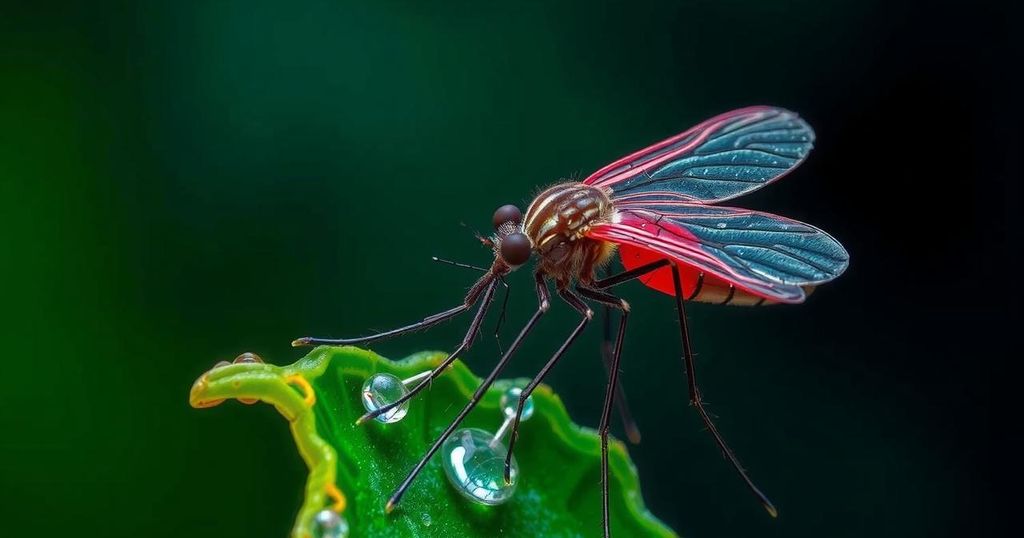Climate Change Accounts for 20% of Global Dengue Cases, Researchers Affirm
Research indicates that nearly 20% of this year’s surge in global dengue cases is due to climate change. The ideal temperature range for dengue transmission is found to be between 20-29 degrees Celsius, with future predictions suggesting significant increases in cases due to rising temperatures. Innovative solutions, such as breeding Wolbachia-infected mosquitoes, may help mitigate the effects of climate change on dengue transmission.
Recent findings indicate that climate change is responsible for nearly 20% of the unprecedented increase in dengue cases worldwide. U.S. researchers have emphasized the linkage between higher temperatures and the spread of this viral disease, traditionally confined to tropical regions. The study examined dengue infections across 21 countries in the Americas and Asia, revealing that temperatures between 20-29 degrees Celsius are ideal for the proliferation of dengue. The researchers predict a 200% increase in dengue cases in certain regions of the Americas over the next 25 years due to climate warming. Furthermore, the World Health Organization has reported over 12.7 million dengue cases this year alone, with actual numbers likely much higher due to underreporting. A promising avenue in combating dengue involves breeding mosquitoes infected with Wolbachia bacteria to thwart the transmission of the disease. A case study from Niteroi, Brazil, showed remarkable protection during a major outbreak, suggesting that such measures could significantly mitigate risks associated with the intensifying dengue outbreaks as a result of climate change.
The discussion surrounding climate change and its health implications has gained traction in recent years, particularly in relation to infectious diseases such as dengue fever. Dengue, a viral infection spread primarily by mosquitoes, is sensitive to environmental factors, particularly temperature. As global temperatures rise, mosquitoes have begun to invade new territories, bringing with them the diseases they carry. Recent studies are now beginning to quantify the impact of climate change on the outbreak frequency and distribution of such diseases, making this an urgent public health issue.
In summary, the unprecedented rise in dengue cases can be attributed in significant part to climate change, with researchers estimating that nearly 19% of current cases arise from global warming. The findings highlight the urgent need for climate action to mitigate these impacts on public health. Additionally, innovative mosquito control measures, such as the introduction of Wolbachia-infected mosquitoes, show promise in reducing dengue transmission and protecting vulnerable populations from the increasing threat posed by the disease in a warming world.
Original Source: www.barrons.com




Post Comment